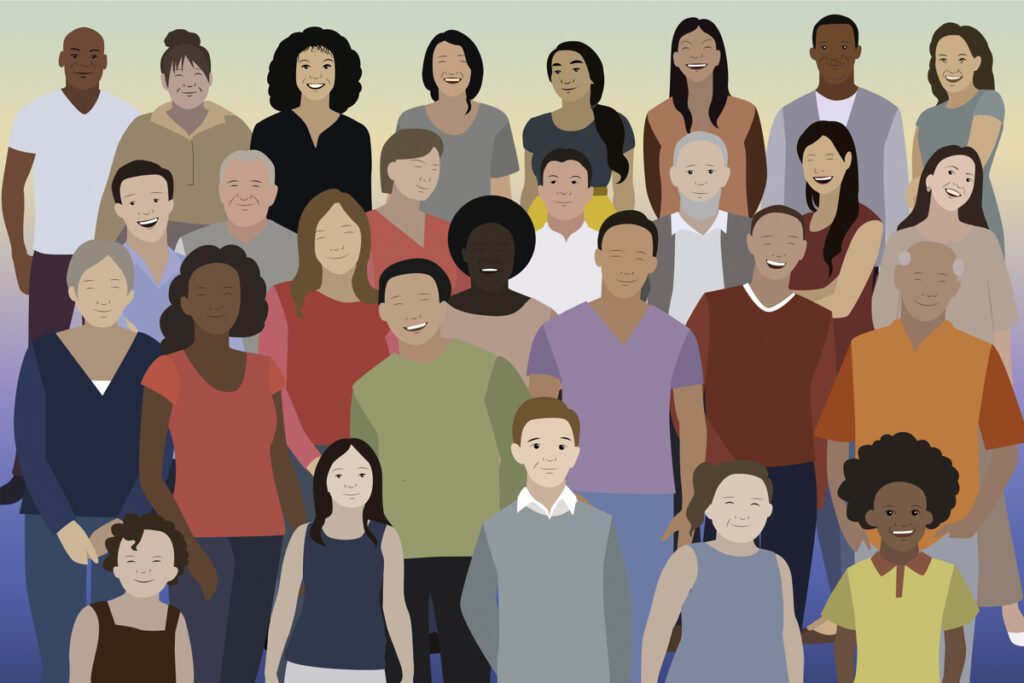
HUMAN understands that racial diversity is a strength. We empower and advocate for people and communities of diverse heritage, including those that constitute the global majority.
Our mission is to address, confront, and educate about the multifaceted barriers that hinder equality and impede access to opportunity. These barriers encompass challenges such as imposter syndrome, mental well-being, both systemic and indirect discrimination, and additional socioeconomic factors that disproportionately affect people from traditionally excluded backgrounds.
Our corporate workshops and consultancy services are meticulously designed to guide employers and employees in cultivating a workplace that thrives on diversity and inclusivity. The stark reality is that racism and discrimination permeate all strata of the business world, despite the enactment of the Equality Act 2010. We are on hand to help you identify and eliminate discrimination in all its forms.
Direct discrimination involves overt and deliberate acts of unfair treatment, often based on a person’s characteristics like race, gender, or age. Examples include refusing a job to someone due to their ethnicity or openly using derogatory language based on their gender. Indirect discrimination, on the other hand, is often less apparent and involves policies or practices that have a disproportionately adverse impact on a specific group, even if not intended. An example would be a company requiring employees to work on certain religious holidays, which disproportionately affects employees of a specific faith.
3%
At the end of 2020, just 3.5% of leaders in the FTSE 100 were from ethnic minorities, down from 7% in 2019 and 8% in 2018.
Green Park
32%
32% of people who have witnessed discrimination at work took no action.
Pearn Kandala
60%
60% of Black employees and 42% of Asian employees have experienced racism at work.
Pearn Kandala
We will work hand-in-hand to implement pragmatic solutions:
- Education and Awareness: Opening a dialogue to increase awareness of discrimination issues, bias, and their impact.
- Equality Policies: Developing and implementing comprehensive anti-discrimination policies that cover both direct and indirect forms of discrimination.
- Practice and Policy Review: Developing a framework to review and revise company policies, practices, and procedures to identify and eliminate any that unintentionally result in discrimination.
- Fair Hiring Practices: Implementing fair and unbiased hiring processes, including blind recruitment methods to reduce direct and indirect discrimination in recruitment.
- Promoting Inclusivity: Fostering an inclusive workplace culture where employees feel safe reporting discrimination, and where diversity is celebrated.
- Legal Protections: Ensuring compliance with anti-discrimination laws and regulations, and provide clear reporting channels for any instances of discrimination.
- Support Networks: Establishing support networks for employees who may be disproportionately affected by discrimination, creating safe spaces for dialogue and assistance.
- Data Collection: Collecting and analysing demographic data to identify patterns of discrimination and track progress in reducing it.
While discrimination may not always be intentional, equipping employers with the knowledge to proactively uphold the safeguards outlined in the Equality Act 2010 is vital to prevent potential legal action and promote a work environment where absenteeism decreases, productivity soars and the gifts of genuine inclusivity are realised.